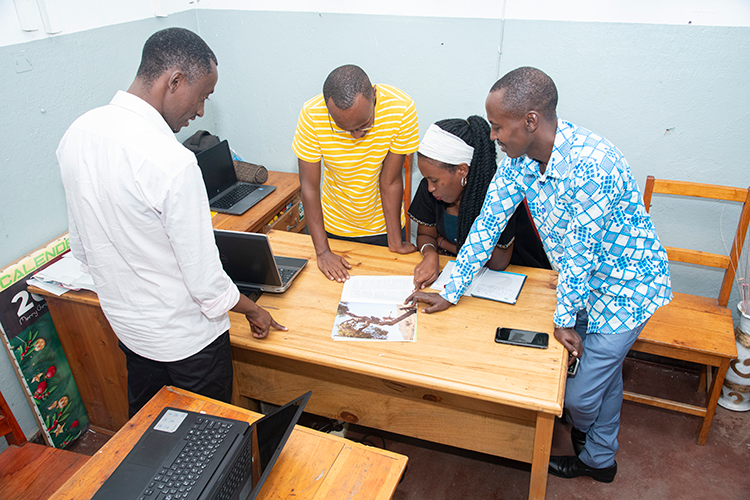A very recent initiative, “Emploi TV” was only established in November 2022. The project was born to address the reality of workers in Burundi and their serious lack of knowledge about their rights, the regulations that govern the world of work, as well as the connection these rights and regulations have with the development programmes set out under the United Nations 2030 Agenda and its Sustainable Development Goals (SDGs).
“Emploi TV came very naturally to us. We’re clearly able to see how very vulnerable our friends, our families, our neighbours and all of us are in Burundi due to the general lack of knowledge of our laws and rights, often written in a language that is far too complicated. We want to make this knowledge accessible to all, to better equip people to respond to exploitation and to enable them to live a more dignified life. This is also why we decided to pay particular attention to SDG 8 on decent work and sustainable economic growth,” explains Léandre Ndayizeye, the initiator of this venture.
Although close to workers and trade unions, it is important to underline that “Emploi TV” is not a trade union initiative but an independent journalistic entity with a free and independent editorial team that is trying to develop its activity in a difficult environment.
According to the ITUC Global Rights Index, Burundi is a country where the rule of law has broken down and where workers have no guarantee of their rights. The ITUC’s SDG 8 Monitor places Burundi in 36th position out of 41 countries in sub-Saharan Africa, indicating that working conditions are extremely difficult in the country, particularly in terms of employment vulnerability and economic well-being.
“The situation in the country is very hard. Respect for rights and freedoms and the application of the law are unfortunately hampered by the position of certain authorities who see the independent media, civil society and trade unions as subversive,” explains Léandre.
The idea of specialising in employment and sustainable development came quite naturally to the team, which is directly affected by life in a country like Burundi where resources are limited.
“We work on a voluntary basis. There are four of us in total. A technician, a content creator/editor, a designer/photographer/videographer and myself, who is in charge of ensuring the further development of the media,” explains Léandre. “And our aim is to promote, in our own way, the implementation of what the people of Burundi are so cruelly lacking, that is, decent work in decent conditions, with universal and dignified social protection.”
The highly motivated team is cautious but confident about the future. It has drawn up a roadmap with four objectives for the year 2023: to continue to expand public awareness of the labour legislation; to strengthen knowledge about the SDGs; to promote the key role of tripartism for sustainable societies, and to further professionalise “Emploi TV” by strengthening the team’s skills and expanding its reach.
“We are thinking about potential training and appearing on other networks. For the moment, we are on YouTube and Facebook, but we are thinking about creating a website and being on other networks used by the people of Burundi at home and abroad.”


